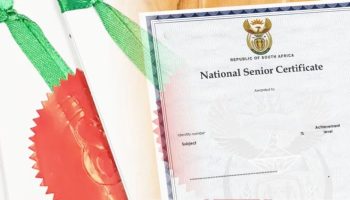Navigating the complexities of legal arrangements, such as a Limited Power of Attorney (LPOA), can often seem daunting. An LPOA is a legal document that grants authority to an individual, known as an Agent, to act on behalf of another person, the Principal, for specific tasks or decisions. This document is valuable because it allows Principals to delegate authority for particular matters without relinquishing their overall control over their affairs.
Understanding the practical uses of a Limited Power of Attorney can offer peace of mind and flexibility. For instance, if we are unable to manage certain financial or legal responsibilities due to illness or travel, designating an Agent through an LPOA ensures that trusted individuals can handle these tasks on our behalf. This targeted delegation makes it a powerful tool for maintaining our affairs smoothly.
In drafting a Limited Power of Attorney, clarity on the scope of authority is essential. We must clearly outline the specific areas where the Agent is allowed to act to prevent any confusion or overstepping of boundaries. With thoughtful planning and careful selection of an Agent, a Limited Power of Attorney serves as a strategic measure to safeguard our interests while offering necessary support.Learn more about limited power of attorney
Establishing a Limited Power of Attorney
When establishing a Limited Power of Attorney, one must ensure all factors are carefully considered. The process involves selecting an agent, defining their authority, adhering to legal requirements, and ensuring proper execution. Each step is crucial in securing the intended outcomes.
Choosing the Agent
We must select an agent with care. They should be trustworthy and capable. The agent will be making critical decisions on our behalf, so it is vital to choose someone responsible. It’s wise to consider their decision-making abilities and reliability.
Experience and the ability to communicate effectively are vital. The agent should also be someone who understands our intentions and respects our wishes. These qualities ensure that they can act in our best interest.

Defining the Scope of Authority
Once the agent is chosen, we need to clearly delineate their authority. The Limited Power of Attorney Form must explicitly state the powers granted. This could range from handling financial transactions to selling property. Specificity prevents misunderstandings.
Defining the scope is crucial to maintaining control over what the agent can do. We need to be precise about any limitations. For example, an agent might be allowed to manage a bank account but not sell real estate.
State-Specific Considerations
Different states have varied laws impacting Limited Power of Attorney. It’s important to consult state-specific regulations. For instance, states like California and Texas might have unique requirements for document execution.
Certain states may impose additional witness or notarization requirements. States like New York and Georgia might have particular mandates regarding incapacitation or expiration clauses. We must comply with our state law to ensure legal validity.
Execution and Witnessing Requirements
Executing the document correctly is essential. This often requires signing in front of witnesses. Some states, such as Indiana and Ohio, mandate a Notary Public for notarization. This adds a level of authenticity to the document.
We should check specific signing requirements in our state. For example, states like Alabama and Virginia may have different witnessing protocols. Ensuring these steps are followed is crucial for the document’s enforceability.
Limitations and Termination
Limited Power of Attorney grants specific authority but comes with inherent boundaries. Revocation ends these powers. Incapacity or death of the principal impacts even the strongest agreements.
Delineating Powers and Limitations
The Limited Power of Attorney defines specific powers given to the agent. We must clearly lay out these special powers to prevent any potential misuse. For example, the agent might have authority over certain financial transactions but not over others like property sales. It’s crucial to state the expiration date for these powers. Boundaries ensure that our intentions are honored and the agent acts within the agreed framework.
In some cases, despite being labeled “limited,” ambiguity in documentation might allow for unintended authority. We should always consult legal advisors to ensure restrictions are well-documented and understood. This act of clarity can prevent disputes or voided actions.
Revocation of Authority
Revocation involves the principal withdrawing the authority granted to an agent. This can be done at any time, provided the principal is not incapacitated. To revoke, a written notice is typically necessary, and it’s effective immediately upon receipt.
We should communicate the revocation to any third parties involved with the agent. Failure to do so might lead to unauthorized transactions being considered valid. The principal’s right to reverse authority illustrates the flexible nature of these arrangements.
If the Limited Power of Attorney includes specific conditions for termination, such as the agent completing a task, those need to be outlined clearly. Legal consultation can help enforce revocation policies effectively.
Effects of Principal’s Incapacity and Death
The impacts of the principal’s incapacity or death are significant. Generally, a Limited Power of Attorney becomes void if the principal becomes incapacitated unless a durable clause is present. In durable power of attorney, authority remains during incapacitation.
Following the principal’s death, all powers are immediately void. Our legal system assumes no agent can represent a deceased person, shifting authority typically to an executor. This ensures that responsibilities align with estate and probate laws.
Courts may step in during uncertain situations, especially when there’s doubt over the principal’s mental capacity or the authenticity of the agent’s actions. Maintaining clarity in documentation reduces the need for legal interventions.






